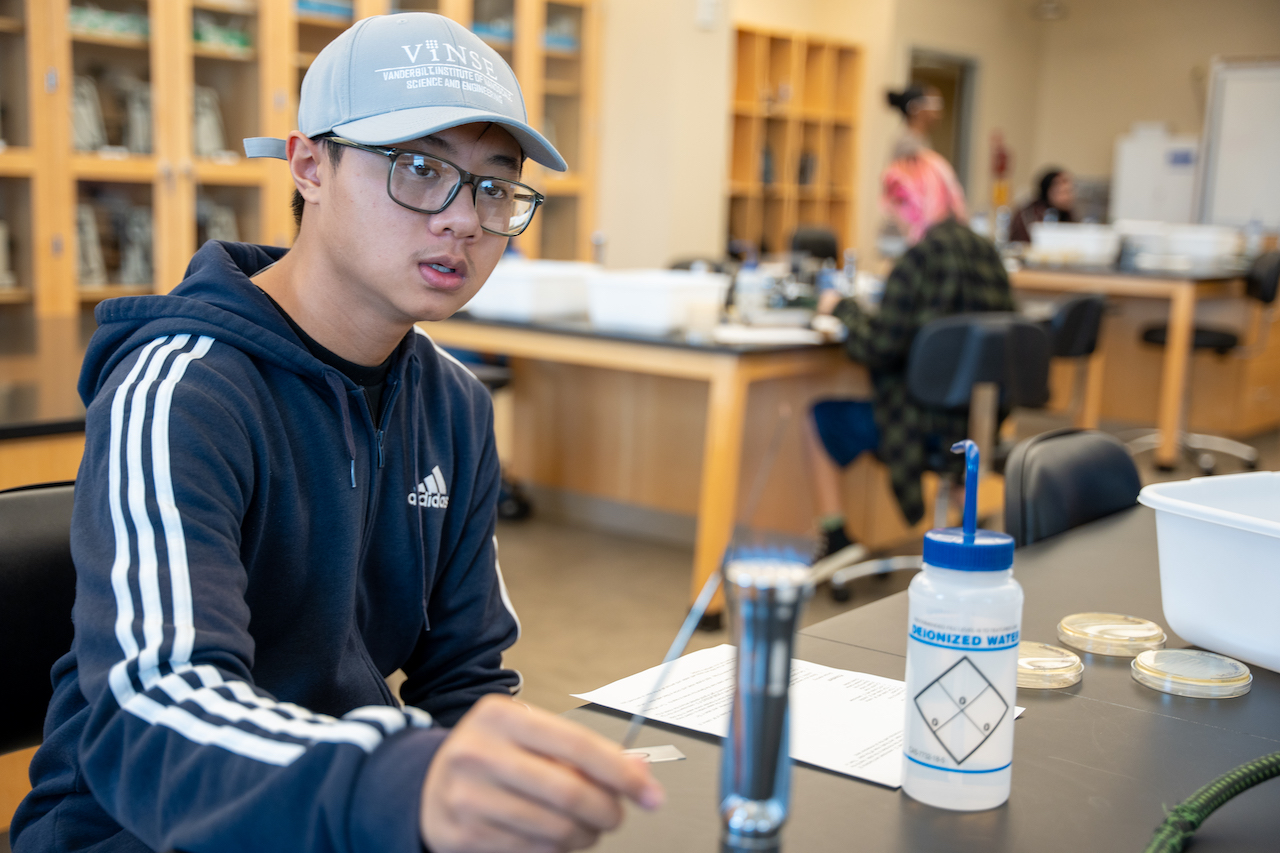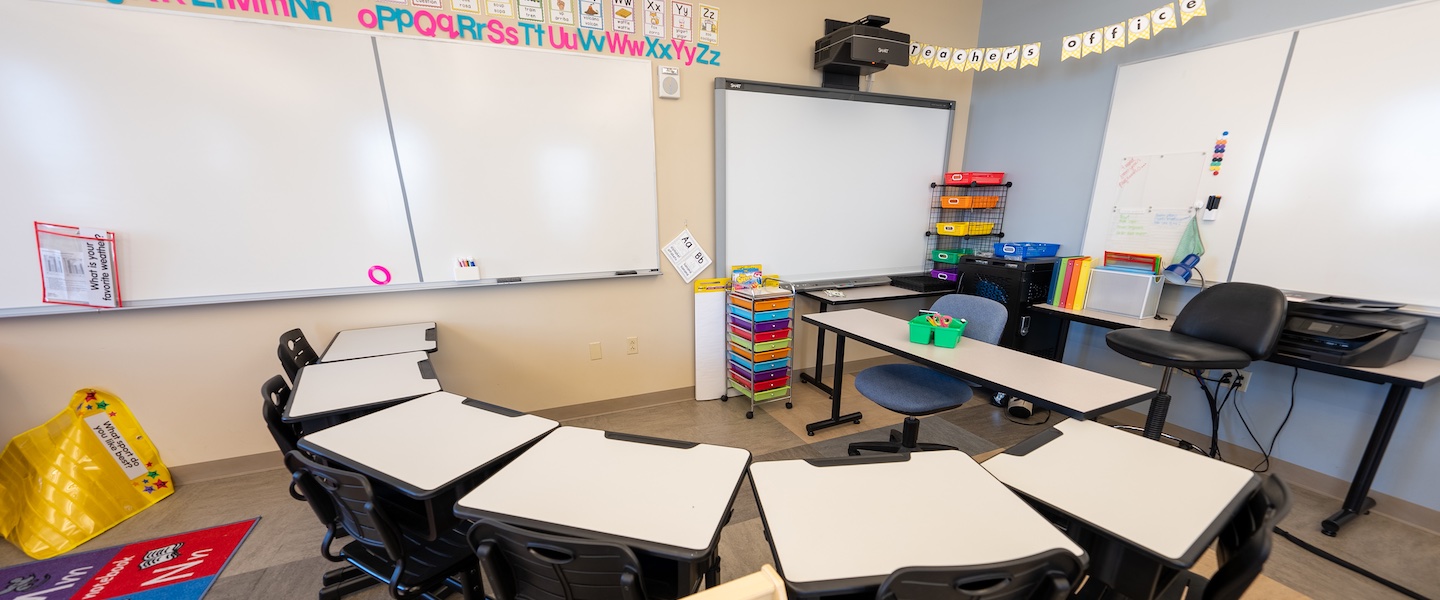How Belmont Prepares Male Educators for Classroom Success
A critical shortage of male teachers continues to affect K-12 education across America, with men making up just 23% of elementary and secondary school teachers today, down from 30% in 1987, according to the National Center for Education Statistics. Belmont University's College of Education is addressing this gender gap through intentional recruitment, mentorship and innovative program design.
"We need teachers from all backgrounds who reflect the rich diversity of our student population in Tennessee," said Dr. Jim McIntyre, dean of the College of Education and assistant provost for academic excellence. "Male educators bring unique perspectives to the classroom and serve as important role models for all students, particularly boys who may not have positive male influences in their lives."
Male Role Models Transform Student Outcomes
Recent research reveals the profound impact male teachers can have on student outcomes. According to Education Week, having positive male role models in the classroom is especially beneficial for boys who may lack male figures at home, a reality for more than 20% of children who live in households with no adult male present, according to U.S. Census data.
For Black male students in particular, the presence of male teachers can be transformative. A landmark 2017 study from Johns Hopkins University found that having just one Black teacher in grades 3-5 reduced Black boys' likelihood of dropping out of school by 39% and increased their likelihood of considering college by 29%, particularly for those from low-income homes.
"Our male students need male teachers," said Graham Spencer, a Belmont College of Education graduate who now teaches in Metro Nashville Public Schools. "Our male students see themselves in our male teachers, and seeing professional, successful men pushes our students to be their best selves and do their best work."

Graham Spencer
Breaking Barriers: Why Men Don't Choose Teaching Careers
Experts point to several reasons why boys don't typically consider teaching careers. These include not seeing men in teaching roles, internalizing assumptions that teaching is a "female" profession and concerns about low wages. A global survey of 15-year-old boys found that those from countries with higher teacher salaries were more likely to consider teaching as a career.
Belmont alumnus Chris Dickerson, (undergraduate '17, MAT '20) who now teaches kindergarten in Metro Nashville Public Schools, reflected on his own educational experience: "As I was going through school, I had very few male teachers, especially in elementary school. It really is unfortunate to think that there were few male mentors during my own educational journey, but I also think that is one of the reasons why I find it rewarding that I could be a part of creating a different story for one of my students."

At Belmont, breaking this cycle begins with intentional recruitment and support. Juan Jose Escamilla Vargas, a current education policy major, shared: "The conversations I get are about how important it is for me to enter into this profession and field! It reminds me how important this path is for me, even when it gets hard. I believe it's important to students to see males, especially of different backgrounds, teach within the classroom and be a beacon of support."
Creating Supportive Environments for Male Teacher Candidates
Research shows that gender stereotyping by teachers could be a factor in boys' high rates of disciplinary measures and disengagement. An EdWeek Research Center survey found that 43% of teachers agreed boys in their classes "often" had trouble sitting still for extended periods of time, compared to just 16% who said the same about girls. Additionally, 34% of teachers surveyed said female students they taught "almost always" appear more focused and engaged than male students.
Belmont's College of Education prepares future teachers to recognize and address these challenges. The program emphasizes understanding diverse learning styles and creating inclusive classroom environments where all students can thrive.
"It has granted me a whole new perspective in the work being done," said Escamilla Vargas about his experience as a male student in Belmont's education program. "My peers push me to be the best educator possible, and my professors allow me to use my background to my advantage. It's a strong support system for me, knowing that if I ever find myself struggling, I can count on them to support me through difficult stints in this field."
Finding Fulfillment: Male Teachers Report High Career Satisfaction
Male teachers frequently report high job satisfaction, using terms like "daily gratification" and "professional fulfillment" to describe their careers, according to EdWeek. Spencer shared, "It is so worth it. I am so thankful to be able to do what I do and I know I have an impact on my students' futures and on our community. My third group of students is graduating this spring and, while it is crazy to see them become young adults, it is a feeling like none other when I see them at high school events and they are excited to see me, reflecting fondly on our time together."

Juan Jose Escamilla Vargas (far right)
Multiple Pathways to Teaching Success at Belmont
Belmont offers multiple routes to becoming a teacher, including the innovative 4+1 program that allows students to earn both a bachelor's degree and Master of Arts in Teaching degree in just five years.
Dickerson credits his Belmont education with preparing him for classroom success: "The College of Education really helped me develop both the skills and confidence to begin my teaching career. From teaching quick small group lessons in Literacy I&II to practicing Tier 2 interventions in Classroom Management, I felt like I had the knowledge base to go into the field."
Addressing Misconceptions
Male teachers often face misconceptions about entering the profession. Dickerson offered reassurance based on his experience: "It did not take long after I started teaching to realize that most of what I was thinking about being a man in elementary education – how colleagues might perceive me, what parents might think and if there would be awkward or difficult moments I could encounter in a women-dominated field – was just unnecessary thought. In my own experience, principals just want good employees, teachers just want good colleagues, and parents just want someone to love on and educate their children."
For those concerned about career prospects, McIntyre noted that the education field offers many pathways beyond traditional stereotypes. "There's a little bit of pigeonholing sometimes like, 'OK, you're the male teacher, so we'll have you in the classroom for a couple of years and then you'll be the coach and the dean of discipline and then an administrator,'" he said. "But if your forte is instruction, and you're a great instructional professional and leader, that's great too. You can be a teacher."
Early Recruitment: Summer Camps Expose Youth to Education Careers
Recruiting more male teachers requires a multi-faceted approach. Recruitment efforts should start early, as attempting to recruit male students in high school is often too late.
Belmont's approach aligns with these insights, focusing on early exposure to teaching and providing robust support systems. The University offers summer camps for all ages — from Little Bruins Preschool programs to specialized STEM, arts, sports and music camps for elementary, middle and high school students. These programs help expose young people to educational environments and potential career paths early in their development.

VISIBL microbiology camp
Building Community: HEMAC and Male Education Initiatives at Belmont
The effort to increase male representation in education at Belmont is part of a broader initiative that emerged from the university's Flourishing Together Task Force, created by Belmont President Greg Jones to address specific challenges facing male students while supporting all students' success.
"We can focus on the flourishing of all students, all of our young people and still recognize that there are some gaps that need to be addressed and that there may be some specific areas of support for male students," said McIntyre.
This work led to Belmont's connection with Richard Reeves, author of "Of Boys and Men," and ultimately brought the Higher Education Men's Alliance and Consortium (HEMAC) to campus for their first national convening. HEMAC works to address troubling trends among college-age men, including lower rates of college attendance, persistence and graduation, along with higher rates of depression, suicide and unemployment.
The partnership with HEMAC complements Belmont's growing learning community for male education students. While only about 10% of Belmont's education students are male, the University is working to create supportive environments where these students can connect and find mentorship, including a student group.
"We're trying to create a learning community that speaks about and addresses some of those challenges and encourages more of our students to think about and consider the education profession," McIntyre explained. "It's both about encouraging more males to think about careers in education, but then also supporting the few that we have in the pipeline right now."
This community isn't exclusive to men, McIntyre emphasized, but welcomes anyone interested in supporting male educators and addressing the challenges they face. The initiative is still in its early stages, with plans to expand programming in the fall.
As teacher shortages worsen nationwide, Belmont sees its focus on recruiting and supporting male educators as a crucial part of the solution.
"If we're going to address the teacher shortage that is upon us and getting worse, helping more men consider the education profession is one part of the solution," McIntyre said. "We need to make sure that men who are considering education know that there are great role models in this work, great options in this work, and there's a lot of support and connection and community in this work as well."
"Our male students need male teachers. Our male students see themselves in our male teachers, and seeing professional, successful men pushes our students to be their best selves and do their best work."
Explore More
Learn more about the College of Education and summer camps at Belmont.


